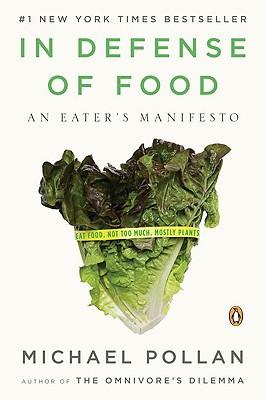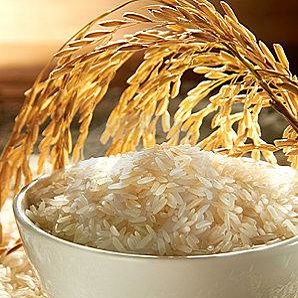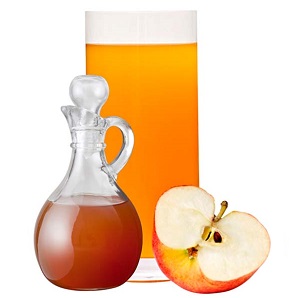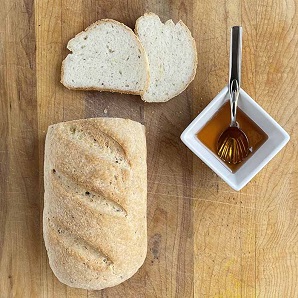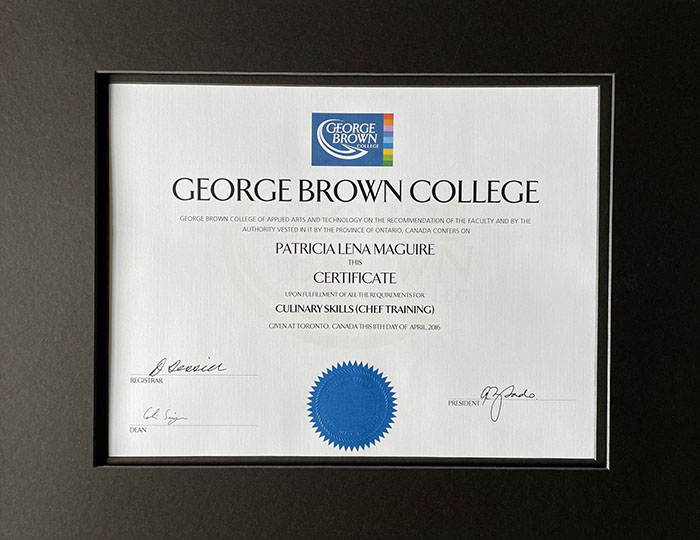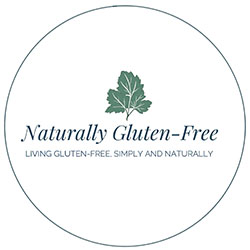- Home
- Books on Celiac Disease
- In Defense of Food
In Defense of Food
An Eater's Manifesto
|
Author: Michael Pollan The Penguin Press, New York, 2008 |
I did not receive a free copy of this book and I was not asked to review it. It's here because I view it as a useful resource.
If you want to buy it, click the photo or the link to Amazon. I will earn a small commission, at no cost to you.
Review
In Defense of Food: No one writes more eloquently or compellingly about food than Michael Pollan. This book is not specifically for celiacs or anyone on a gluten free diet, it’s for anyone who eats.
This is an exploration of what food really is. It pulls back the curtains on all of our confusion about what we should be eating and how we got to where we are in this world where so many are malnourished in the midst of incredible abundance.
There are a few take home tidbits that can really inform your every eating and buying decision. This book was the originator of the 7 work aphorism “Eat food, not too much, mostly plants.” If we all followed this advice, modified of course to exclude gluten containing grains for some of us, I think many of our health problems and much of our confusion would be alleviated.
“Eat food” is further expanded to say “don’t eat anything your great-grandmother wouldn’t recognize as food”. This even goes to the ingredient lists on the labels. There are many items in the grocery store that your great-grandmother might think she recognizes, but they have been so adulterated that they only appear to be what they represent themselves to be. Bread for example was for centuries made of flour, water, salt, and yeast. Look at a loaf of Wonderbread and it has more than 30 ingredients!
I’ve often wondered why it seems like you need a degree in nutrition to be able to feed yourself. Can it really be that hard? Every other animal on the planet seems to instinctively know what it should eat, except us. We get into debates about fat, is it good or bad? Sugar, how bad is it really? Carbohydrates; should I eat lots or avoid them? Meat; is it a necessary source of protein, or will it lead me to an early grave? Man…no wonder we’re stressed out!
Well Pollan sheds some light on that too. "In Defense of Food" expands upon his work in “The Omnivore’s Dilema” to explore just that. Many species have a specific food that they eat. There are no decisions. Cows eat grass, Lions eat meat and so on. We can eat almost anything so are left to trust our senses and our culture to help us determine what’s good for us and what’s poison. Our senses lead us to sweet, salt and fat, tastes that are rare in nature but signify foods that are calorie and nutrient dense. Bitter and sour are often the flavours of plant toxins, so we reject those. The problem is, food producers and marketer play on our natural instincts, adding sugar especially to our food that doesn’t need to be there. As a result, we are over fed and under nourished and the flavour “sweet” that we are naturally attracted to as a nutritious source calories is now the flavour of poison.
Pollan’s work is truly "in defense of food". Not vitamins or minerals or any other sub component of food, just good wholesome food. His suggestion is that we let culture be our guide. Not the North American culture of delegating responsibility for our food to others, but the cultures that we came from: the Europeans, Asians, and all of those others that are steeped in tradition and have food at the centre of their family and social values. They didn’t know anything about cholesterol, or saturated fat, or anti-oxidants. They knew good hearty food and seemed to instinctively know how to assemble an entire cuisine that kept them satisfied and healthy.
I highly recommend this book. When I picked it up, I couldn’t put it down. It just brings clarity and common sense to something that’s become so incredibly confusing.
Home > Gluten-Free Lifestyle > Reading and Resources > In Defense of Food
